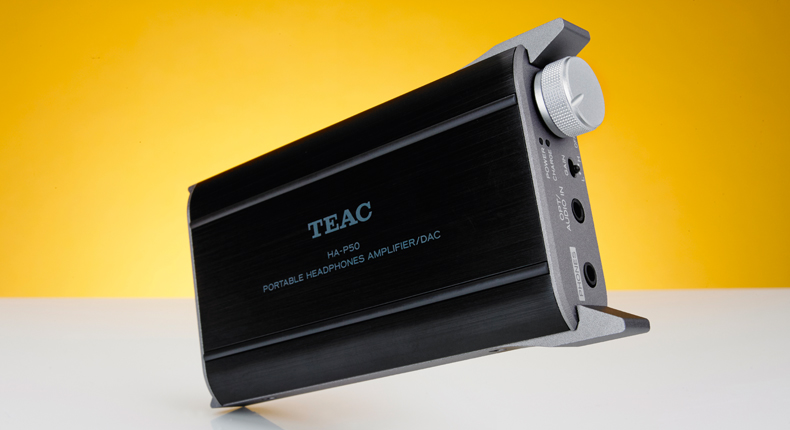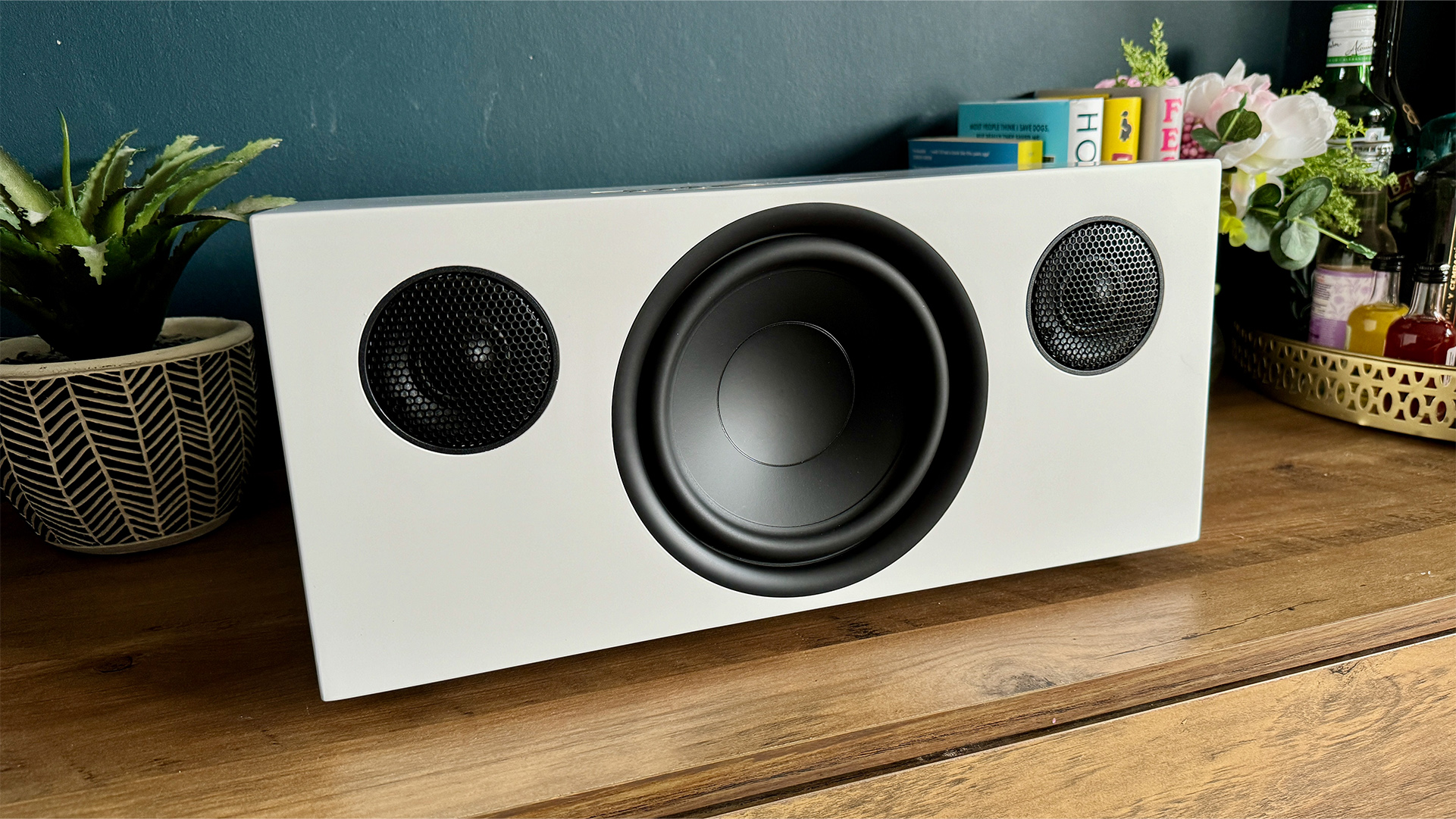What Hi-Fi? Verdict
A great headphone amp and DAC, which will leave you satisfied
Pros
- +
Balanced sound
- +
Great space and organisation
- +
Striking design
Cons
- -
Rivals boast greater detail and dynamics
Why you can trust What Hi-Fi?
First things first: it looks like Batman’s hip flask, but in keeping with the Dark Knight look, the TEAC HA-P50 – essentially a portable version of the company’s HA-501 headphone amplifier – is well armed.
As with the Oppo HA-2, there are USB and mini USB inputs and analogue input via 3.5mm jack, and a gain switch.
MORE: Oppo HA-2 review
Build
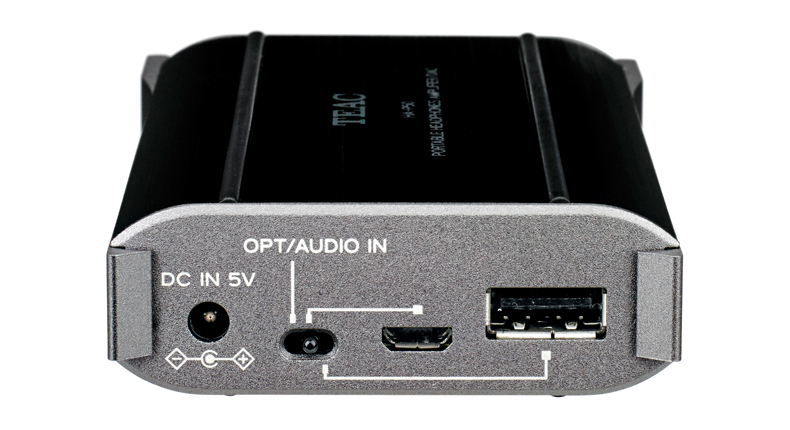
At 210g, it’s a bit heavier than the Oppo, but not enough to be a strain. The full aluminium body feels like it could withstand a fair amount of dropping, throwing or bouncing around in your bag.
In terms of build and compatibility, TEAC has the portability thing spot on. And the HA-P50 has its own battery pack to make that a viable option.
Sound
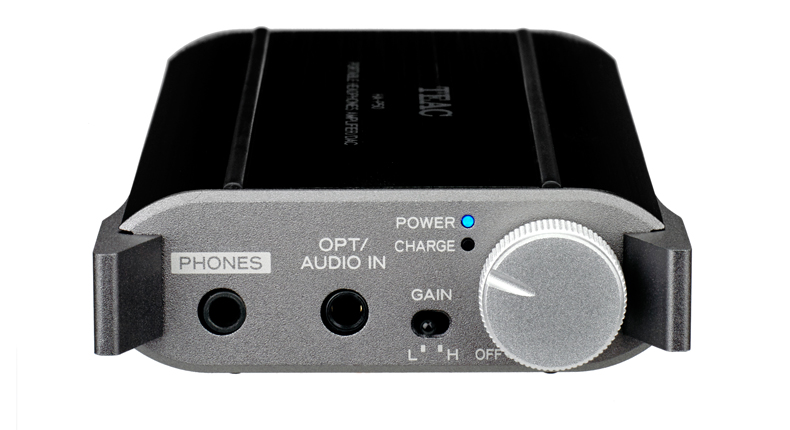
Upon playing the Unplugged version of Neil Young’s Long May You Run, we are struck by the space in the room. Closing our eyes, it feels as if we’re there as the music’s being played.
Good organisation helps create an environment in which the instruments interact, calling and answering each other, while the vocal melody is allowed to breathe.
This is perhaps clearest with vocal harmonies. You can hear each singer, yet they layer nicely and stay connected despite voices coming from various points around the room. The HA-P50 treads precisely that thin line between spaciousness and emptiness.
Timing feels good, too; Young and his band plod lazily along without letting the beat drag, and the HA-P50 has no problem keeping up with more complex polyrhythms such as on Thom Yorke’s The Clock.
Again, there is room for each sound to occupy its own space, keeping the arrangement tidy and giving purpose to Yorke’s meandering vocal line.
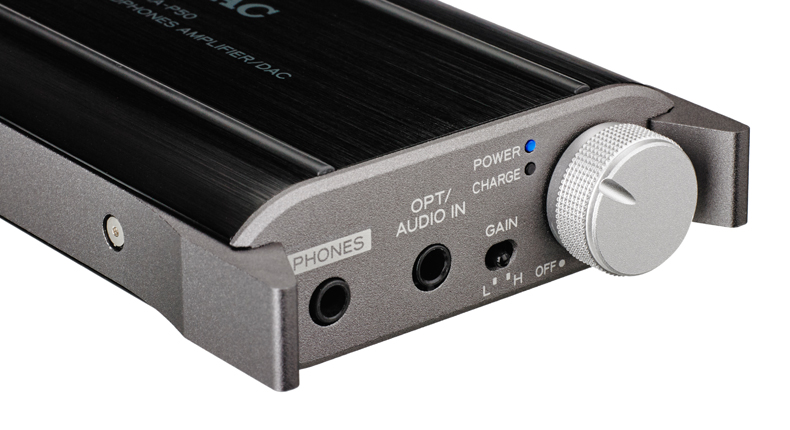
Where the HA-P50 suffers marginally in comparison with Oppo’s HA-2 is detail. Take The Clock again – the guitars are slightly less textured, the percussion sounds are less earthy and Yorke’s vocal doesn’t sound as natural.
The differences here are small, but the music becomes less expressive and less engaging, as a result. Oppo’s soundscape is narrower, but tends to offer more personality.
Another aspect of that is dynamics. Here again the HA-P50 is good, only not as exceptional as Oppo in this price bracket.
There isn’t a chasm of difference in how loud or quiet each is willing to go, but TEAC doesn’t appear as capable of tracking each peak and trough – those momentary rises and falls in intensity with which you find the musicianship in a piece.
MORE: Best DACs 2015
Verdict
For £200, TEAC has produced a quality, well built and easily portable headphone amp. The space and organisation are superb – you hear parts in your music that before you didn’t realise were there – and are well coupled with a decent amount of detail and reasonable dynamics.
In short, you won’t be disappointed.
However, if you are prepared to stretch the budget to an extra £50, then we think the Oppo HA-2 gives you that extra drop of character and, in turn, will leave you more satisfied.
See all our TEAC news and reviews
See all our headphone amp reviews
What Hi-Fi?, founded in 1976, is the world's leading independent guide to buying and owning hi-fi and home entertainment products. Our comprehensive tests help you buy the very best for your money, with our advice sections giving you step-by-step information on how to get even more from your music and movies. Everything is tested by our dedicated team of in-house reviewers in our custom-built test rooms in London, Reading and Bath. Our coveted five-star rating and Awards are recognised all over the world as the ultimate seal of approval, so you can buy with absolute confidence.
